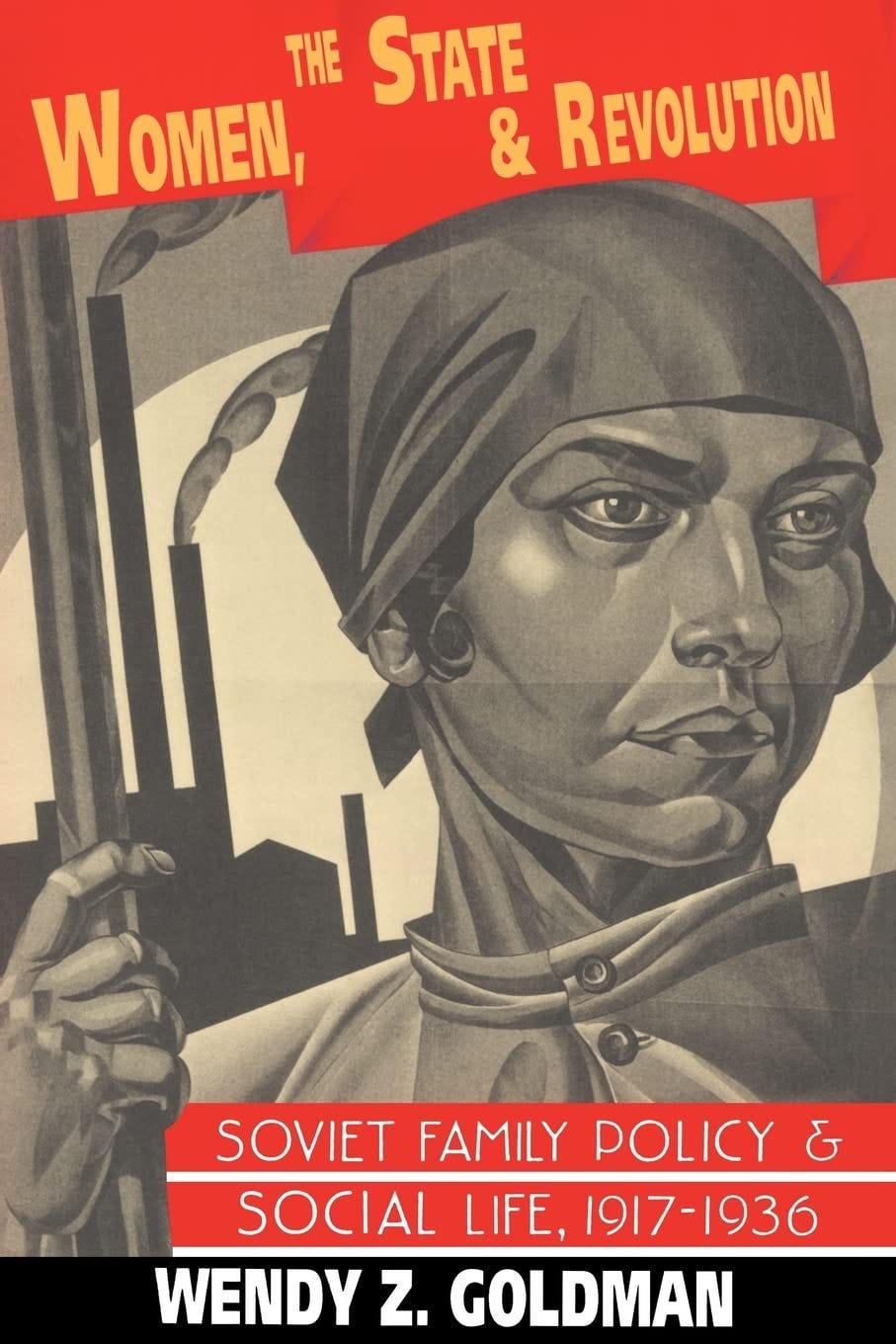When the Bolsheviks won the Russian civil war, and put their hands on the levers of power, the liberation of women was high on their list of goals. To that end, divorce, previously almost impossible, was made as easy as raising your hand: too many women, the argument went, were stuck in “loveless matches based on property,” or in marriages that began with mutual love, but became something else. As a result, the divorce rate skyrocketed; in Moscow, by 1926 “there was one divorce for every two marriages.” Laws protecting women in the workplace were also passed: bans on night work; requirements for paid maternity leave; work restrictions for pregnant women and nursing mothers.
This was all well-intentioned, in conception. In fact, it made things worse. The new economic regulations made women more costly to employ, so they were fired and replaced by men. This, you’ll say, is behavior one might expect in a capitalist economy, where profits determine a firm’s decisions; how did it happen under communism? The answer is that an attempt at perfect communism, in a country already ravaged by war, had produced famine, killing millions; the government had found it necessary to allow some degree of private property and market exchange, in order to feed its people.
Divorce liberalization exacerbated the effects of the economic regulations. The feminist argument was that marriage made women dependent on men, and strict divorce laws made them prisoners. But when women’s earning power is less than men’s, strict laws also mean security, through a guaranteed ongoing share of their husband’s earnings. Now that men too could walk away from a marriage, women could be abandoned with nothing. “Women told repeated tales of divorce, separation, and abandonment,” writes Wendy Goldman in Women, the State and Revolution: Soviet Family Policy and Social Life, 1917–1936. Under a regime nominally aimed at improving the lot of women, many were left with few choices but the worst: “Prostitution represented the most painful, but not the most improbable, fate of the husbandless women.”
See also: “Abolish Marriage!”



This post led me to https://en.wikipedia.org/wiki/Wendy_Z._Goldman
"She is currently married to pirate historian Marcus Rediker."
Requested an edit to "historian of pirates" :)
https://en.wikipedia.org/w/index.php?title=Wendy_Z._Goldman&action=history